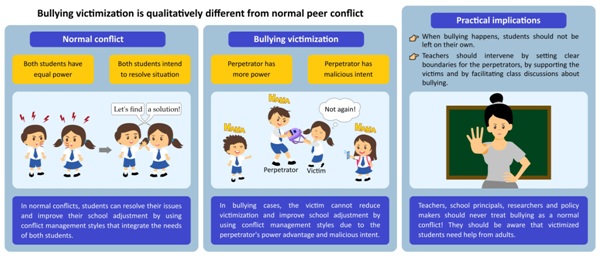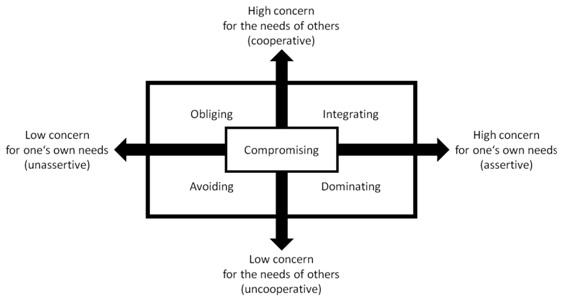When it comes to understanding conflict management, the concept varies from person to person. School kids usually understand conflict as bullies and tormentors are the most visible sources of disruption. However, conflict can also arise in various forms and it can often be constructive. However, to keep everything in check and prevent arguments from boiling into destructive events, you as an educator must employ several strategies to teach conflict resolution skills to children.
What Is Conflict Management?
Conflict management is the ability to understand and effectively maneuver disagreements. The periods of conflict can occur in the workplace, classroom, or even life in general. Not every conflict will be the same and hence not all of them will be resolved similarly. Thus, students must have a proper understanding of how to deal with these situations and handle conflict effectively.
Why Is It Important?
Students are susceptible to conflict at a much higher rate than adults as they are at an age where hormones are on overpowering most of the time. Therefore, they are more likely to create disagreements, argue with others, have a difference of opinion, and much more.

Source: www.mdpi.com
Students at this age can greatly benefit from the understanding of conflict resolution as they will:
- Learn to respect other’s viewpoint
- Learn to be calm and non-defensive
- Be able to effectively communicate with others
- Be ready to move past the issue and seek a resolution
- Have the desire to compromise for good
Ways To Teach Conflict Management To Middle Schoolers
Middle school students are just entering their teen selves and are more prone to getting themselves into highly conflicting situations. Not only that, but since their emotions are heightened due to the surge of hormones they often struggle to deal with conflicting situations.
In such cases, here are a few ways you can teach conflict management to middle schoolers.
1. Anger Management
To stop conflict from escalating you as instructors can enable students to learn the measures to avoid getting angry. Anger can cloud one's judgment and hence it can affect their ability to think clearly and assess the situation for what it truly is. Thus, learning anger management will help them be aware of their own feelings and address the situation accordingly.
2. Emotion Refocus
When students are involved in a conflict is essential to shift their attention to a more positive emotion. As teachers, you can prompt them to think about their favorite memory or experience for a brief moment before returning to the problem. This approach will rest the brain and enable them to think more clearly than replaying the negative situation over and over again.
3. Problem Comparison
Before learning conflict resolution techniques, students need to put their conflict in perspective and see the bigger picture. They can start by comparing the problem and see the situation in a new light. You can ask them to define the problem and figure out how challenging it is. Once they are encouraged to reflect on the problem, they can easily find the solution.
4. Gain Different Perspective
Being fixated on one notion or opinion is often the major cause of conflicts. You must motivate your students to be the bigger person and place themselves in the shoes of the other person to gain a new perspective on the issue. This will help them analyze their own actions and realize if it’s their fault and be capable of showing empathy towards others.
5. Role Playing
You can conduct role-playing activities with your middle school students as it will allow them to deal with real-life situations better. Present a few problems and ask your learners to enact the situation and find out probable solutions to resolve the issue. As the activity proceeds you can offer feedback or guide them toward possible outcomes.
Ways To Teach Conflict Management To High Schoolers
Unlike middle school students, high schoolers can be a little tricky to deal with. As they are passing the teenage stage and slowly moving into adolescence, they become more adamant and often aggressive. Thus, teachers should handle them carefully so that they can guide them toward solutions rather than teaching them how to augment a particular situation.

Source: www.mdpi.com
Here are some ways, high school students can approach a conflict at hand:
1. Walk It Out
One of the easiest strategies to help students deal with conflicting situations is by removing them from those situations. Teach them that sometimes it is okay to just walk out of the situation and let the heat subside. Allow them to take some time to calm down, cool off and reassess the situation. Once they are ready they come back and deal with the conflict with a more level-headed mindset.
2. Normalize Conflict
Learners need to understand that conflict in the classroom is natural and normal as everyone has their own thoughts, opinions views, cultures, traditions, etc. Guide your students to develop skills that can make conflict constructive. Encourage your students to not be afraid of conflict instead embrace it and conquer it as quickly as possible to move on from it.
3. Brainstorm Solutions
As teachers, you can ask your students to identify the differences in other persons' viewpoints to understand their perspectives. They should be motivated to find out the root cause behind someone else's actions. This will allow me to learn to brainstorm solutions and accept a compromise if needed. Start the discussion by simply analyzing the motive behind the conflict and inspire them to present their own ideas.
Help Your Students Grow
Learning how to handle conflict and disagreements is a vital part of a student's socio-emotional learning. Social skills like empathy, cooperation, and self-control are integral to developing emotion and therefore conflict resolution. Helping students develop strong socio-emotional skills can strengthen their intellectual development and lead to lifelong success. Regardless of whether or not you are a newbie or a veteran teacher, pursuing Counselling Courses for Teachers will allow you to understand your students and hence handle them better.
Written By : Sanjana








